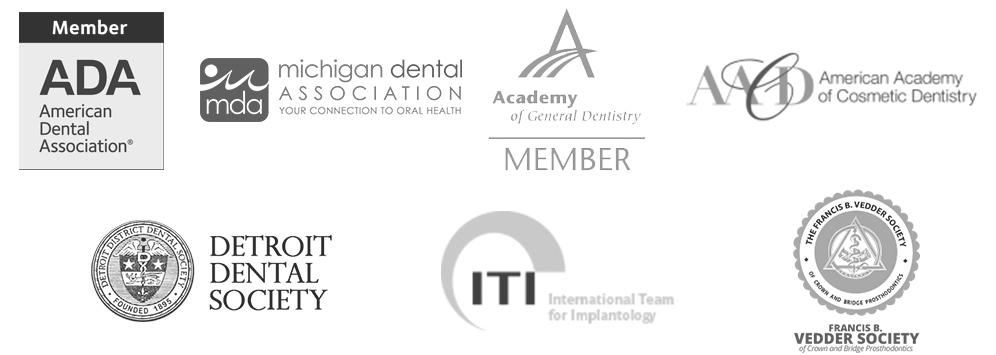Relieve Your Jaw Pain With Dr. Shlafer
The temporomandibular joint (TMJ) connects each side of your skull to your lower jaw. If this joint gets damaged or over-stimulated, you may develop temporomandibular joint disorder (TMD), a condition where the surrounding nerves, joints, or jaw muscles become impaired. TMD can lead to a variety of harmful symptoms including pain and stiffness in your jaw. Some of the most common causes of TMJ disorder are:
- Clenching or grinding your teeth, also known as bruxism
- Osteoarthritis or rheumatoid arthritis in the joint
- A dislocated disc between the ball and socket of the joint
- Missing teeth
Explore our guide to learn more about TMJ disorder and how Dr. Shlafer can provide the relief you need.
Symptoms of TMD
TMD often goes misdiagnosed because the symptoms are usually seen as stand-alone issues. Dr. Shlafer has invested in specialized training so that he can identify TMD quickly and provide treatment. TMD can result in a wide range of symptoms, including:
- Frequent pain or stiffness in the jaw
- Lockjaw
- Clicking or popping sounds when you move your jaw
- Misaligned bite
- Headaches
- Facial swelling and pain
- Toothaches
- Neck pain
- Tinnitus
If you have persistent pain in your jaw or difficulty opening and closing your mouth, it could be a sign of TMD. We encourage you to seek professional treatment with Dr. Shlafer promptly.
Why You Should Seek Treatment
In addition to causing unnecessary, treatable chronic pain, TMD can also put you at a higher risk for developing:
- Sleep disorders such as insomnia and sleep apnea
- Vertigo
- Tooth fractures
- Dislocations
- Permanent lockjaw
- Damage to the jaw cartilage
Whether or not your TMD is affecting your daily life, seeking proper treatment can relieve your pain and protect you from developing other issues. Dr. Shlafer makes treating TMD simple and effective for you.
Treating TMD Disorder
Depending on the severity of your case, there are different TMJ therapy treatment options, including medication, therapies, lifestyle changes, and surgery.
Dr. Shlafer offers high quality mouthguards that are worn overnight to prevent you from grinding your teeth. These devices also relieve pressure in your jaw while you sleep, and they’re customized to your bite for a perfect fit.
If a mouth guard doesn’t improve your TMD symptoms, this likely means you’re suffering from malocclusion, or a misaligned bite. In cases this severe, surgery is typically the only option. Thankfully, Dr. Shlafer can perform an occlusal equilibration treatment right here in our office.
Over the course of a few appointments, he’ll meticulously alter your bite until the alignment is perfect and you’re totally pain-free. Rest assured, Dr. Shlafer has been treating patients for over 30 years and he can ensure your safety during surgery.
Frequently Asked Questions
You should see a doctor for TMJ disorder if you’re noticing constant pain, tenderness, or having trouble speaking and eating. Dr. Shlafer can help diagnose your TMD and find an effective treatment best for you.
Leaving your TMJ disorder untreated can exacerbate your symptoms in the future. We recommend asking us about the disorder if you begin to notice early symptoms so we can stop your pain before it progresses.
Jaw pain when you’re chewing is often caused by TMJ disorder. Luckily, this disorder is treatable and you can eat without pain once you receive the right treatment.
The cause of TMD can vary because the area is very complex around this jaw joint. When you come in to visit Dr. Shlafer at our Farmington office, he can have a better understanding on what the potential cause of your TMD is.
When you’re chewing or yawning, you shouldn’t be experiencing any ear. If you do notice persistent ear pain, you may be suffering from TMD.
Your TMJ is the joint that connects your jaw to your head. It’s located on both sides of your head near your ear, so this is why a problem with it can cause ear pain. Finding TMD treatment can alleviate the pain in your ears, making it easier to eat, speak, and yawn without any pain.
Jaw popping can oftentimes occur when you’re chewing, but it doesn’t always mean you have a TMJ disorder. We still recommend asking Dr. Shlafer about your jaw popping symptoms to ensure you’re not suffering from the disorder.
If you do have TMD, Dr. Shlafer can suggest different mouth exercises to mitigate the pain and offer you tips to help prevent it from aggravating.



